For President Trump, the road ahead
Harvard analysts ponder changes across the American and global landscapes
After a grueling 18-month election that shattered conventional wisdom and longstanding norms of civility and fair play, Republican businessman Donald Trump has defeated Hillary Clinton and will become the 45th president of the United States. After eight years of a Democratic White House, change is coming on strong.
Trump’s victory appeared largely driven by voters who wanted to “send a message” by repudiating the political and economic status quo. The raucous campaign was long on tone and messaging, yet often short on policy positions. But with a GOP president and Congress and an opening on the Supreme Court, the shifts ahead could be seismic.
Scholars across Harvard spoke with the Gazette about the election’s impact on presidential politics and how Trump’s presidency is likely to change the nation in realms from foreign policy and immigration to the economy and the high court. Early on, here’s a capsule look at how scholars view the road ahead.
UNLACING THE AFFORDABLE CARE ACT

John McDonough
Professor of the Practice of Public Health, Harvard T. H. Chan School of Public Health
With the election of Donald Trump as the nation’s next president and the preservation of Republican majorities in the U.S. Senate and House, the future of efforts to reform the U.S. health care system and to achieve universal coverage now enter an arena of high uncertainty. One certainty is this: Beginning in January 2017, even before Trump’s inauguration, congressional Republicans will begin to move legislation to undo foundational elements of the Affordable Care Act (ACA).
They will use the special legislative process known as budget reconciliation that enables a bill to avoid filibusters to proceed with limited debate and to pass with only 51 votes. The major challenge with reconciliation is that a bill using this process can only include matters with significant budget impact, up or down. That will not be a problem in dismantling key ACA expansions of Medicaid and private health insurance. It will also not hinder the repeal of major ACA tax increases, especially the new Medicare payroll taxes on high-income households that took effect in 2013.
Such a bill is a twofer for Republicans by (1) repealing the reviled Obamacare law, and (2) enacting an enormous tax cut for high-income families. And we know Republicans can get such a bill through the Congress because they did so in January 2016 only to face a veto from President Obama. President Trump will sign the bill.
The catch is that some moderate Republican senators, such as Shelley Moore Capito (R-W.V.), voted for the 2016 reconciliation bill because they knew it would not become law. How will Capito, Susan Collins (R-Maine), and other less-hardline Republicans vote on a bill that would eliminate health insurance coverage for up to 20 million low- and moderate-income Americans? That’s the major uncertainty.
With what might they replace this lost coverage? House Speaker Paul Ryan unveiled a plan last summer that would encourage states to re-establish high-risk pools for individuals with pre-existing medical conditions, and to provide a flat tax credit for individuals purchasing health insurance. Many experts agree that these measures would leave many millions of currently insured Americans without options. Ryan refused to submit his ideas to the Congressional Budget Office for scoring to enable Americans to understand the impact on individuals and on the federal budget.
Though the process will start in early January, it’s uncertain how long it will take. Though Republican leaders will want to rip off this bandage as quickly as possible, this would be a momentous move backward, and the nation will be watching.
A RETREAT ON TARGETING CLIMATE CHANGE
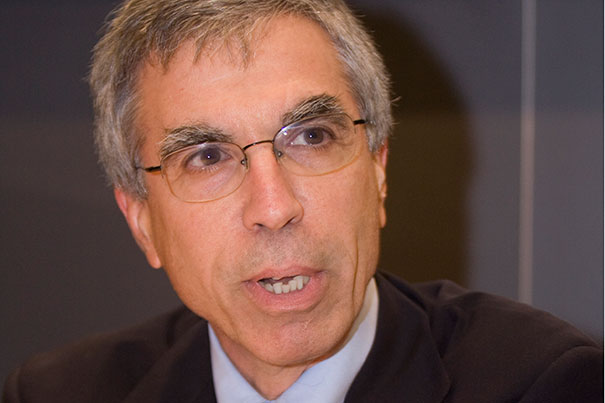
Robert Stavins
Albert Pratt Professor of Business and Government, Harvard Kennedy School
Voting for Donald Trump and Trump’s own positions and pronouncements was more about attitude than issues, but one of the few areas where issues came up was on climate change. However, there’s huge uncertainty. Tweets about climate change being a Chinese hoax are not a clear indication of policies that we can anticipate.
That said, Trump, if we take him at his word, will try to pull the United States out of the Paris Agreement on tackling climate change. But it will take four years to do that, now that it has come into force. (It came into force quickly — with countries accounting for 55 percent of global emissions ratifying it — only because countries were afraid of Trump being elected, and wanted to lock the United States in.)
Despite the fact that the Obama administration has already submitted the instrument of ratification through executive agreement, Trump might submit the Paris Agreement to the Senate, where, of course, it would fail in a ratification vote. Or he might just announce that we will not comply with our already submitted nationally determined contributions, a 26 to 28 percent reduction below 2005 emissions by 2025. The big question is what effect all of this will have on the positions of China, India, Brazil, etc. It will surely not encourage greater action.
Domestically, he wants to “bring back the coal industry,” but the problems of the U.S. coal industry are competition from low-price natural gas for electricity generation, not environmental regulation. Also, that’s inconsistent with his pronouncements supporting fracking, because that increases gas supply and lowers gas prices, which hurts coal.
Could he try to amend the Clean Air Act itself? That would be unlikely to succeed, as Democrats in the Senate would filibuster, I assume. Would he eliminate the Environmental Protection Agency, as he also promised at one point? No, again that would require an act of Congress. But he could try to starve the agency through low funding. And he will be appointing people to hundreds of key positions. That may be my greatest worry, because he may not appoint smart and reasonable people.
RETHINKING U.S. LEADERSHIP GLOBALLY
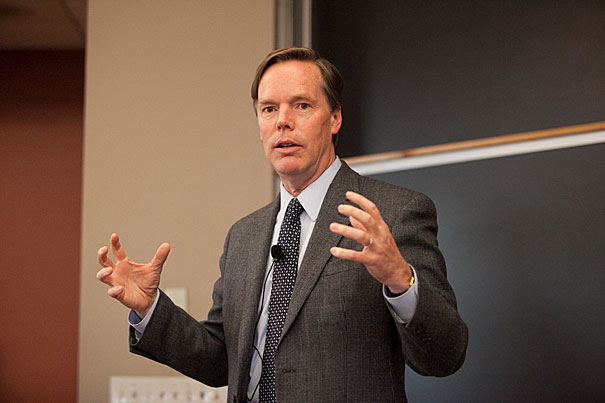
Nicholas Burns
Roy and Barbara Goodman Family Professor of the Practice of Diplomacy and International Relations, Harvard Kennedy School
When Winston Churchill spoke at Harvard in September 1943 at the height of the Second World War, he reminded faculty and students alike that, for the United States, “the price of greatness is responsibility.”
Those are words that President-elect Donald Trump will need to remember and to heed as he assumes the awesome responsibilities of the American presidency. If Trump wishes to keep America the great global leader that it surely is and has been for seven decades, he will need to assume the many obligations we have to lead the free and democratic world at a time of great crisis in Europe, the Middle East, and Asia.
I was deeply disappointed by Trump’s victory last evening. Hillary Clinton was and remains, in my judgment, the far better candidate. She was vastly better prepared to exercise the responsibilities that come to the occupant of the Oval Office. I will always be proud to have served as a foreign policy advisor on her campaign team.
Based on his behavior in the campaign, Trump has not yet shown the American people or the world that he has the judgment, maturity, balance, and knowledge to be a successful president. Let us all hope he can demonstrate those qualities and more in the years ahead. As an American, I know that we must accept this result. Trump won the election fair and square. Our democratic traditions and basic decency mandate that we must now wish him well. We must hope (and pray) for the sake of our country and its 320,000,000 inhabitants that he is a successful leader.
The rest of the world is also adjusting to his victory. That is because Trump turned 70 years of American foreign policy, in both Democratic and Republican administrations, on its head during the campaign. Trump consistently denigrated our NATO allies while praising Russian leader Vladimir Putin, disparaged our Asian allies Japan and South Korea, pledged to keep Muslims out of America, and repudiated the Mexican people in vulgar terms. These rash and unwise statements have already damaged American credibility in the world.
Trump and his senior Cabinet appointees must consider quickly during the transition and after the inauguration on Jan. 20 how to repair these gaping wounds in America’s image and reputation. The United States, for example, has a vital and symbiotic relationship in trade, immigration, energy, and homeland security with our North American allies, Mexico and Canada. Showing respect to the Mexican people and convincing them we will be a good neighbor is another early necessity for the Trump administration.
Our NATO allies in Europe and the Asia Pacific region represent the greatest power differential between the United States and our adversaries Russia and China, who have no fixed alliances or reliable friends. As president, Trump will become the leader of the West at a time of rising authoritarianism in the world. He will need to signal quickly and unequivocally that he intends to be a faithful ally and to protect these countries from Russian and Chinese aggression in Eastern Europe and in the South and East China seas, respectively.
Finally, Trump’s repudiation of NAFTA and trade in general, his rejection of American traditions of welcoming immigrants and refugees to enrich our country, and his disavowal of elementary standards of human rights are cause for real concern. Does he really intend to dismantle NAFTA, the Iran nuclear deal, and the Paris climate change accord? Leading the federal government and the American people from the Oval Office may be the most difficult job in the country. Trump should proceed toward Inauguration Day with a sense of humility. As our first president with no prior experience in government or the military, his will be a steep and potentially treacherous learning curve. We Americans love our country. We must thus wish that he becomes the president we all need him to be.
SPROUTING POPULISM, HERE AND ABROAD
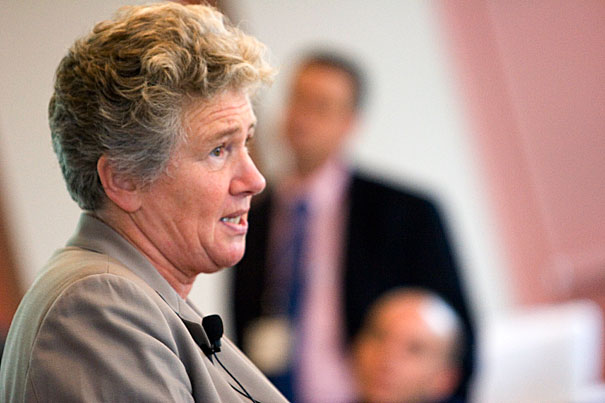
Pippa Norris
Paul. F. McGuire Lecturer in Comparative Politics, Harvard Kennedy School
What explains the populist earthquake in American politics? Some factors are clearly specific to this election campaign: the way that the Republican primaries turned into a circular firing squad for the moderate candidates; the lack of effective new blood competing in the Democratic contests, allowing all the baggage of the Clinton haters to be reignited; events such as the Russian hacking of the Democratic National Committee and the WikiLeaks endless recycling of the Clinton email story, and so on.
But the populist earthquake is also part of a far broader picture. Like Donald Trump, leaders such as Marine Le Pen, Norbert Hofer, Nigel Farage, and Geert Wilders are prominent today in many countries, altering established patterns of party competition in contemporary Western societies. These parties have gained votes and seats in many countries, and entered government coalitions in 11 Western democracies, including Austria, Italy, and Switzerland. Across Europe, their average share of the vote in national and European parliamentary elections has more than doubled since the 1960s, from around 5.1 percent to 13.2 percent, at the expense of center parties. During the same era, their share of seats has tripled, from 3.8 percent to 12.8 percent.
Even in countries without many elected populist representatives, these parties can still exert tremendous “blackmail” pressure on mainstream parties, public discourse, and the policy agenda, as is illustrated by the U.K. Independence Party’s role in catalyzing the British exit from the European Union, with massive consequences. The electoral fortunes of populist parties are open to multiple explanations, which can be grouped into accounts focused upon (1) the demand side of public opinion, (2) the supply side of party strategies, and (3) constitutional arrangements governing the rules of the electoral game.
Applying these explanations to the Trump phenomenon, the demand side concerns the cultural backlash concentrated among older white men who want to “Make America Great Again,” meaning a vision of an older, small-town America, reflecting traditional values common decades ago over more progressive, cosmopolitan, and multicultural values. The supply side concerns how parties compete and the way that the Tea Party wing of the Republican Party advocated and laid the foundation for many of the populist themes that Trump subsequently echoed, including anti-establishment and anti-government efforts, birtherism, climate change denial, and know-nothingness. The institutional context concerns the weakness of party control over the selection process and the path that provides for an outsider candidacy.
But the explanation of the populist revolution is less important than the consequences of a President Trump. This is not just the choice of another leader like any other, where there are genuine party differences on public policies and debate about alternative ways to manage the country. The authoritarian tendencies of his leadership, his attack on basic democratic principles, the isolationist withdrawal of America from the world, are likely to be deeply damaging to human rights at home and abroad. Brexit was a disaster for Britain and Europe, but it was just a seismic tremor presaging a far bigger tsunami.
SOME RESHAPING OF THE ECONOMY
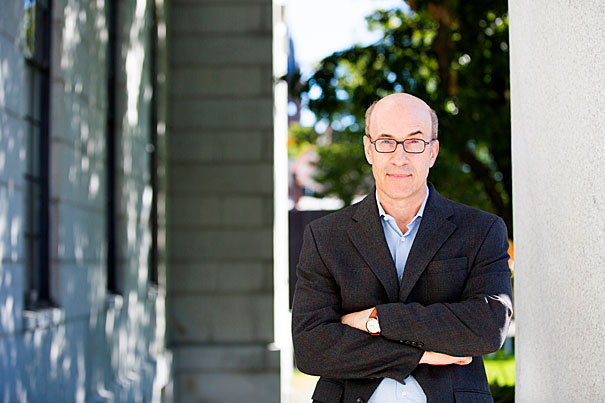
Kenneth Rogoff
Thomas D. Cabot Professor of Public Policy, Faculty of Arts & Sciences
It was an ugly election, and many of us are still scarred and in a state of shock. It is not the economy that worries me, though. In fact, U.S. growth is quite healthy now, and the probability of a near-term recession is not particularly high. Indeed, with Republicans controlling both houses, Trump will probably be able to get through new infrastructure spending (a good idea) and a tax cut (a more debatable idea) that nevertheless will boost short-run growth.
In the long run, one can only hope that the Republican Congress blocks Trump from following through with his campaign pledges on international trade agreements, which will hurt growth and lead to a big rise in the cost of living for poor and lower-middle income families.
A BLOW TO BOTH PARTIES’ ELITES
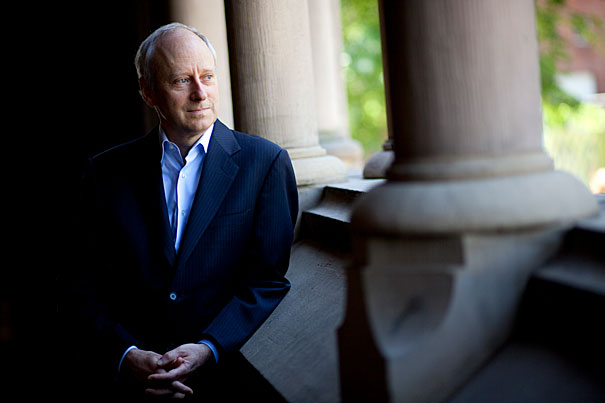
Michael Sandel
Anne T. and Robert M. Bass Professor of Government, Faculty of Arts & Sciences
Trump’s victory is shocking, but not surprising. It reflects the failure of elites in both parties to grasp the discontent roiling the country. It is an angry verdict on two decades of rising inequality, bank bailouts, and a version of globalization that benefits those at the top but leaves ordinary people feeling disempowered.
It is a humbling moment for elites in both parties, for big-data prognosticators, and for a technocratic approach to politics that is tone-deaf to the resentments of people who feel the economy and the culture have left them behind.
A SURGE IN ETHNO-NATIONALISM

Bart Bonikowski
Associate professor of sociology, Minda de Gunzburg Center for European Studies
Donald Trump’s defeat of Hillary Clinton, fueled by a large turnout among white rural and exurban voters, marks a victory for the darkest forces in American politics. The United States as a society and a polity had the opportunity to stand against the politics of fear and resentment. It failed to do so.
It is difficult to know what a Trump presidency will bring. At the very least, we are likely to see the Supreme Court shift radically to the right — representing a major threat to the future of civil rights in the United States — and many of President Obama’s hallmark initiatives, including the Affordable Care Act and the Paris Agreement, will be rolled back. But those expectations would be similar for any generic Republican president working with a unified Republican Congress.
Yet, Donald Trump is anything but generic. During his campaign, he repeatedly undermined fundamental democratic principles, rejected facts and expertise, and vilified racial, ethnic, and religious minorities. These positions are likely to have real consequences for public policy and democratic governance, potentially compromising the integrity of federal agencies and jeopardizing the freedom of the press. Just as importantly, Trump legitimized deep ethno-national resentments among his supporters, which are unlikely to subside after his loss. Driven by a fear of demographic and cultural change, white voters — especially those living outside of major urban centers — have embraced racism and xenophobia and rejected the politics of civility.
Given that GOP elites have largely supported Trumpism — whether tacitly or actively — in the lead-up to Nov. 8, it would be naïve to expect resistance from a Republican Congress should Trump choose to deliver on his exclusionary campaign promises. Moreover, in 2018 and 2020, the Republican Party will almost certainly double down on the ideology that brought it the presidency in 2016. What was at stake in this election was the meaning of the nation itself. Ethno-nationalism has emerged victorious. The next four years are likely to be a trying time for the United States, and for the world.
A NEED TO PROTECT RIGHTS AND FREE EXPRESSION

Jill Abramson
Senior lecturer on journalism, Faculty of Arts & Sciences
A chill went through the Javits Center at around 11 p.m. Tuesday. The site had been picked because of its giant glass ceiling, but that metaphor was becoming more stale by the minute. Although there was a smattering of applause every time a state was called for Hillary Clinton, her supporters began streaming out, some tearful. I’ve covered election nights since 1976, the year I graduated from Harvard. None was as sad or jarring as this one. Donald Trump’s victory is a very real American tragedy, as New Yorker editor David Remnick wrote this morning. The forces of anger and bigotry have triumphed. Our liberal democracy is endangered.
With a unified Republican government in Washington, D.C., and an open seat on the U.S. Supreme Court, the usual checks on a new president’s power are absent. What can be done? In the face of a leader whose rhetoric is authoritarian, it is more important than ever to stand up and protect our constitutional rights. Being tuned into news about politics and policy is more vital than ever.
In journalism, which is my area of teaching, making sure you are informed by fact, not some distorted alt-right version of truth, is crucial. Write clearly and passionately. Continue to exercise our precious freedom of expression.
LOVE, TO HEAL A DIVIDED NATION
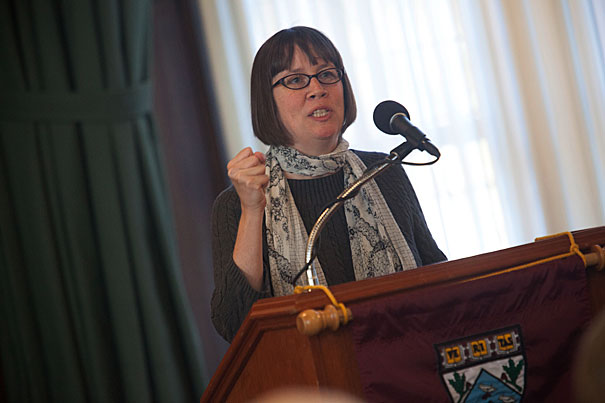
Stephanie Paulsell
Susan Shallcross Swartz Professor of the Practice of Christian Studies, Harvard Divinity School
For more than a year, the president-elect’s disparagement of refugees and immigrants, his reduction of women to sexual objects, the hatred he has directed toward Muslims and Mexicans, his ridicule of disabled people, the resentment he has channeled toward African-Americans, and his caricaturing of black life in this country have flooded into our public and private spaces at full force, undisguised. The outcome of the election has not only exposed the divisions in our nation, but deepened them. There is no doubt that this election made visible genuine economic despair felt by many in this country. But that despair has expressed itself through support for a candidate who brought white nationalism into the mainstream. How do we reach out to one another to try to respond to that despair while at the same time refusing the white supremacist ideology to which it has yoked itself? How do we, as a society, support and protect those made the most vulnerable by that ideology?
Martin Luther King Jr. wrote in 1967 that racism could be “that corrosive evil that will bring down the curtain on Western civilization.” Certainly it is eroding our democracy. In the face of racism, poverty, and war, King called for “an all-embracing and unconditional love for all.”
Love, he argued, was a “force which all of the great religions have seen as the supreme unifying principle of life.” Can we attach ourselves to that force as we try to move forward as a nation? Only if we understand it in the utterly unsentimental way that King did, as a force with the power to transform. Or, as Dostoyevsky put it, “Love in action is a harsh and dreadful thing compared to love in dreams.”
These interviews have been edited for length and clarity.




